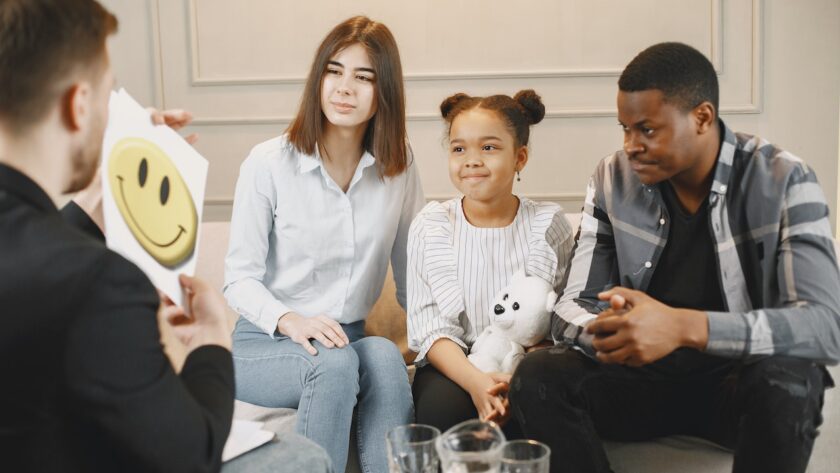A family therapy session is a safe and structured place for family members to express difficult feelings in a safe space. This type of counseling is useful for improving communication, addressing prejudices and managing family drama.
Family therapists often work within the systemic model, which considers that individual psychological problems are influenced and embedded in the family structure. They might use a variety of techniques, including:
Be Kind to One Another
Being kind is a huge aspect of healthy relationships. Whether bringing your colleague coffee on a difficult day or baking your best friend’s favorite muffins, acts of kindness can have a major impact.
Being kind to one another helps prevent dysfunction, as bottled-up feelings can snowball into family problems and affect everyone negatively. Kindness also encourages generosity, as the Bible reminds us of various verses.
Be Honest
Being honest is important for a healthy relationship. But it cannot be easy to do in a therapeutic setting. For example, families attending counseling may have to admit faults that can be hard to hear.
It’s also challenging to gauge how much of the truth a child can handle since maturity levels vary. Deception has many repercussions and can be harmful to the therapeutic process.
Ask for Help
If you’re worried about a loved one’s substance use or mental health, family psychiatry and therapy may help. But it’s important to approach the topic carefully and with support from a trusted adult.
A therapist can offer you and your loved ones tools to communicate better, resolve conflicts and develop new ways of connecting. Behavioral methods focus on changing negative behaviors and attitudes. Psychodynamic ideas try to uncover underlying emotions.
Be Appreciative
It is easy to take each other for granted. Make a point to appreciate the big and small things that your partner does for you each day.
Curiosity yields connection. Ask questions about each other’s opinions, feelings and insights.
Family therapy serves as a bridge, promoting understanding and appreciation of each family member’s unique perspectives. It enables families to communicate more effectively, enhancing overall mental health.
Listen to Each Other
Listening is an important skill that helps prevent misunderstandings and can be effective in family therapy. Ask each other questions about what they’re saying to gain a clearer picture of their perspective and avoid taking things personally.
Licensed marriage and family therapists can help couples determine their issues and work on solutions. They also offer strategic family therapy, which is short-term and focused on making positive structural changes.
Be Patient
Family therapy builds communication skills and helps strengthen bonds, fostering collective growth. It’s particularly effective for families dealing with a mental health condition, such as anxiety or mood disorders, and in stepfamilies.
Most family counseling approaches use systems theory, which means they consider individual psychological issues within the larger context of a family. This can help the Identified Patient realize that their behavior is impacting others.
Be Respectful
Family therapists often emphasize the importance of teaching children to respect others. They may encourage parents to avoid playing favorites with their children or taking sides in sibling arguments.
Little unaddressed problems can snowball into larger ones, leaving everyone with resentment and deeply-rooted issues. Learn to express concerns healthily and clearly. Consider your spouse or child’s thoughts, feelings, and insights. Curiosity yields connection.
Be Honest
Often, family members cannot see how their behavior and words affect others. Involving a family therapist can help everyone learn to be more honest and accountable.
Narrative therapists avoid pathologizing individuals and view problems as unwelcome narratives dominating families. They also use circular questioning to explore interactions, relationships, and perceptions of family members. These techniques help break negative patterns and reframe dysfunctional communication.
Be Compassionate
Modeling compassion can help children learn to care about others, even in difficult situations. Compassion is an important life skill that can be practiced throughout the year, including during family therapy sessions.
Family therapy involves a group of family members, usually with a therapist specially trained in this type of psychotherapy. It can be used to treat a variety of mental health conditions.
Be Open
Family therapy is a type of psychotherapy that focuses on a family’s dynamics and interactions. It can be used as a standalone treatment or in conjunction with medication.
Therapists often use circular questioning during sessions to help families recognize and address problematic relationship patterns. This technique encourages open communication and fosters empathy.
Family therapy can also include games and other activities that promote healthy interaction between family members. These fun and engaging activities are usually less intimidating than discussions about sensitive issues.




